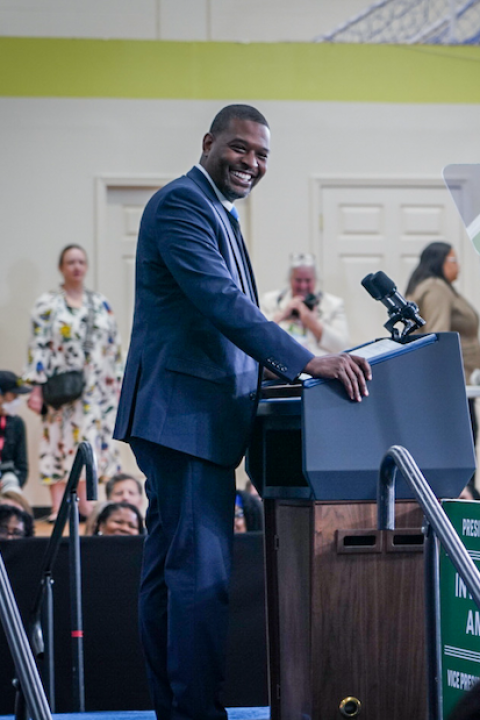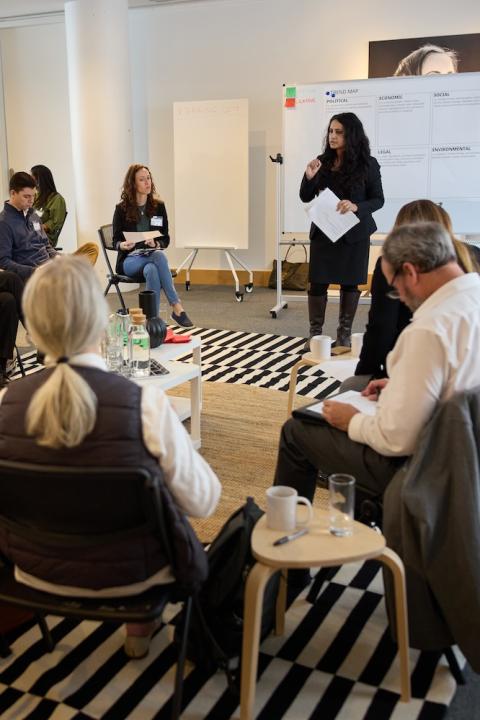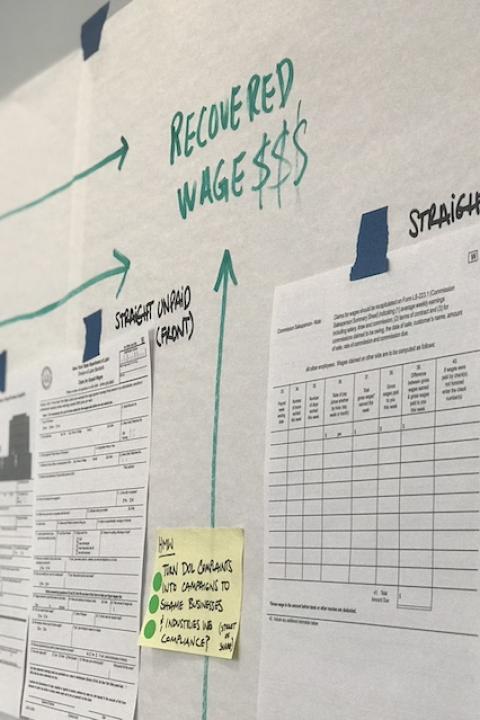
(Image: Kaitlyn Baker/Unsplash)
The rise of artificial intelligence (AI) at breakneck speed has organizations grappling, not just to keep pace with this unprecedented technological sprint, but also to understand how best to harness its potential.
This new state of constant technological change has been coined a “permanent revolution," a phrase inspired by Russian revolutionary Leon Trotsky. AI is considered revolutionary because it brings about sudden, massive changes on a large scale. And it's considered permanent because it will likely advance at a rate faster than the pace of organizational learning.
Despite the anticipated lag between technological development and user adoption, there is a big appetite amongst organizations and their executives to get up to speed, said Damien Howard, chief enterprise solutions officer at Per Scholas, a U.S.-based training and employment consultancy nonprofit.
“There is increased recognition of the importance of having a future workforce strategy in place,” he said. “However, organizations are still trying to figure out what AI and its implementation actually means, and what the impact would look like. They're a little hesitant on moving forward because of that, because it's still in this space of learning.”
But once staff is trained to use the tools, AI can help accelerate further efficiency, development and growth. “AI can increase efficiency by 30 percent, at minimum, in certain areas,” Howard said. “Companies have an immediate opportunity to become more efficient with less of a financial investment.”
Upskilling is crucial
Organizations will need to reskill 50 percent of all employees by as early as 2025 as the adoption of emerging technologies like AI increases, according to a report by the World Economic Forum.
“Organizations are struggling to find and train employees with the necessary expertise and discover what makes AI and other emergent technology effective overall,” Howard said. “That skill gap is a big challenge.”
To prepare for this transformation in the workforce, 57 percent of workers are already upskilling through their employer or by individual means, according to a Per Scholas survey of C-suite leaders.
“Providing targeted training and high-demand skill sets will be paramount for companies to move forward to future-proof their workforce,” Howard said. “I believe it's more upskilling than reskilling, because no one is truly familiar with AI. Even the AI subject matter experts are still learning what AI can actually do. It's new, and it's evolving quickly and consistently, so it’s all about upskilling.”
Almost all of the C-suite leaders surveyed by Per Scholas believe every job will be a tech job by 2033. That makes upskilling the biggest requirement for both companies and individuals to future-proof themselves.
The survey also found that 97 percent of Generation Z, 65 percent of Generation X, and 55 percent of millennials are upskilling mainly by learning technology skills that involve software and application development, AI, coding, and data science.
Budgeting for AI
As technological advancements drive business landscapes to evolve, companies understand that they need to prepare for the future by better managing their staff and improving talent acquisition. This requires rethinking and retraining existing business models, Howard said.
Needless to say, this comes at a cost. “As a C-suite leader or a leader with budget oversight, this should be a part of your budget allocation for the next three to five years,” Howard said. “That would be part of the organization’s research and development, training, and learning and development budget.”
Forty-four percent of C-suite executives see a lack of tech skills as a big concern, and 75 percent of workers are aware that tech skills will be a must-have in the years ahead, according to the survey. Technical knowledge and skills topped the list of keywords C-suite executives look for when interviewing job applicants, followed by communication and project management.
“Previously, human resources managers and talent acquisition leaders had larger budgets to build out talent pipelines,” Howard said. “Now they have more truncated budgets, and their C-suite is putting pressure on them to be more surgical about how they build out their organizations’ talent pipelines.”
AI’s role in diversity, equity and inclusion efforts
“The largest challenge that I see facing organizations right now, specifically attached to the development and implementation of AI, is the lack of regulatory infrastructure and compliance that needs to be wrapped around it in order for it to be an equitable implementation across the board,” Howard said.
AI systems can exhibit biases toward certain underrepresented groups of people, primarily because they mirror human biases. Studies have identified bias in AI technology like autonomous cars and facial recognition software, for example.
“If you don't have diverse individuals at the steering wheel, there's going to be intrinsic gaps that will deepen larger gaps inside of underserved communities because they will just not be thought about as [organizations] continue to develop and implement AI,” Howard said. “That's a real danger because AI can produce things in six months which used to take five to 10 years. So you have to be very cautious about how you're developing that and who you have at the table as you're developing and implementing AI in your firm.”
As the rise of AI mandates a strategic revolution in workforce upskilling to harness its potential and ensure equitable implementation, organizations must invest in learning and diversity to future-proof their operations. The continued success of an organization hinges on embracing this change as both a challenge and an opportunity for growth.

Abha Malpani Naismith is a writer and communications professional who works towards helping businesses grow in Dubai. She is a strong believer in the triple bottom line and keen to make a difference. She is also a new mum, trying to work out a balance between thriving at work and being a mum. In her endeavor to do that, she founded the Working Mums Club, a newsletter for mums who want to build better careers and be better mums.














